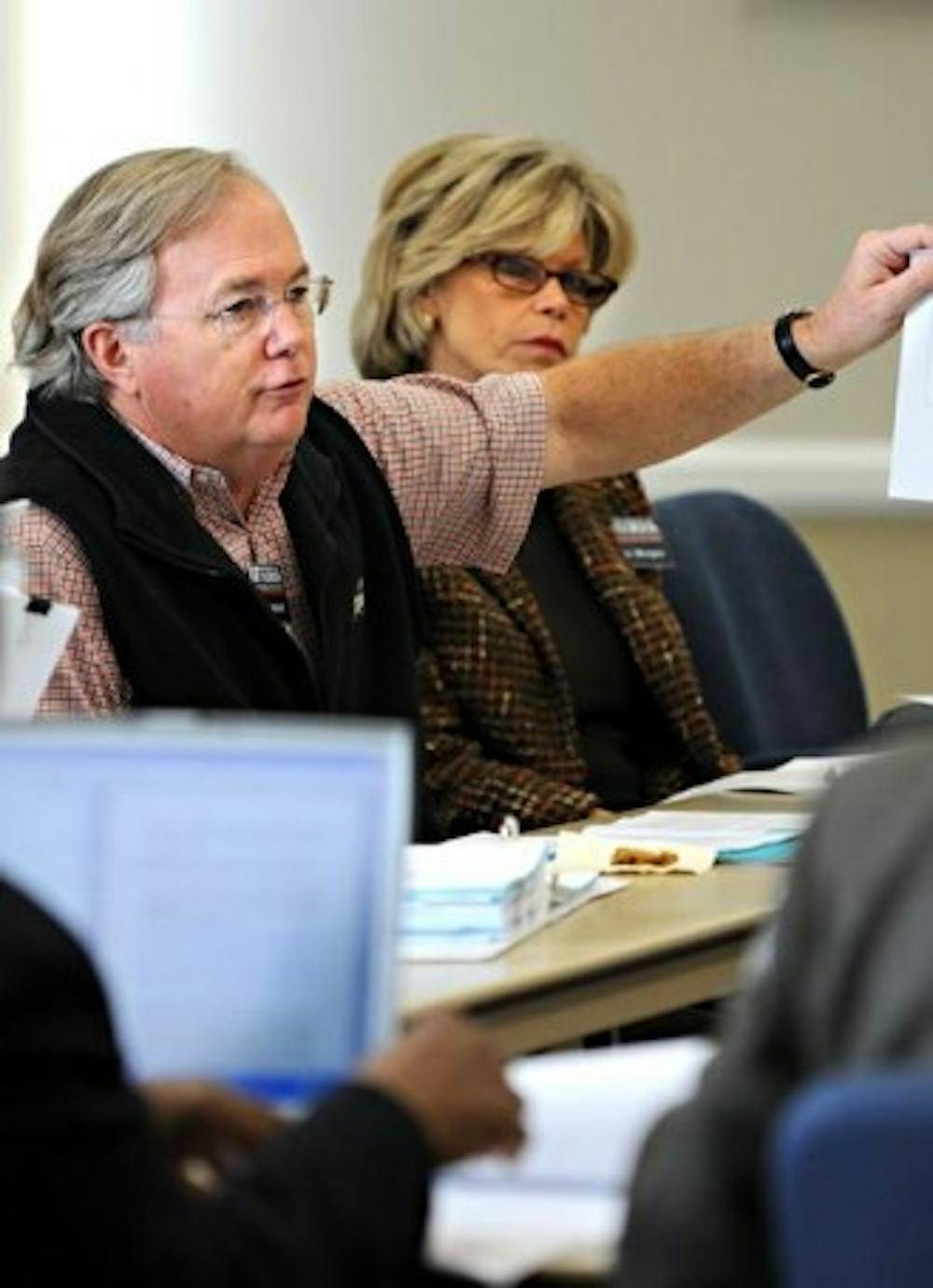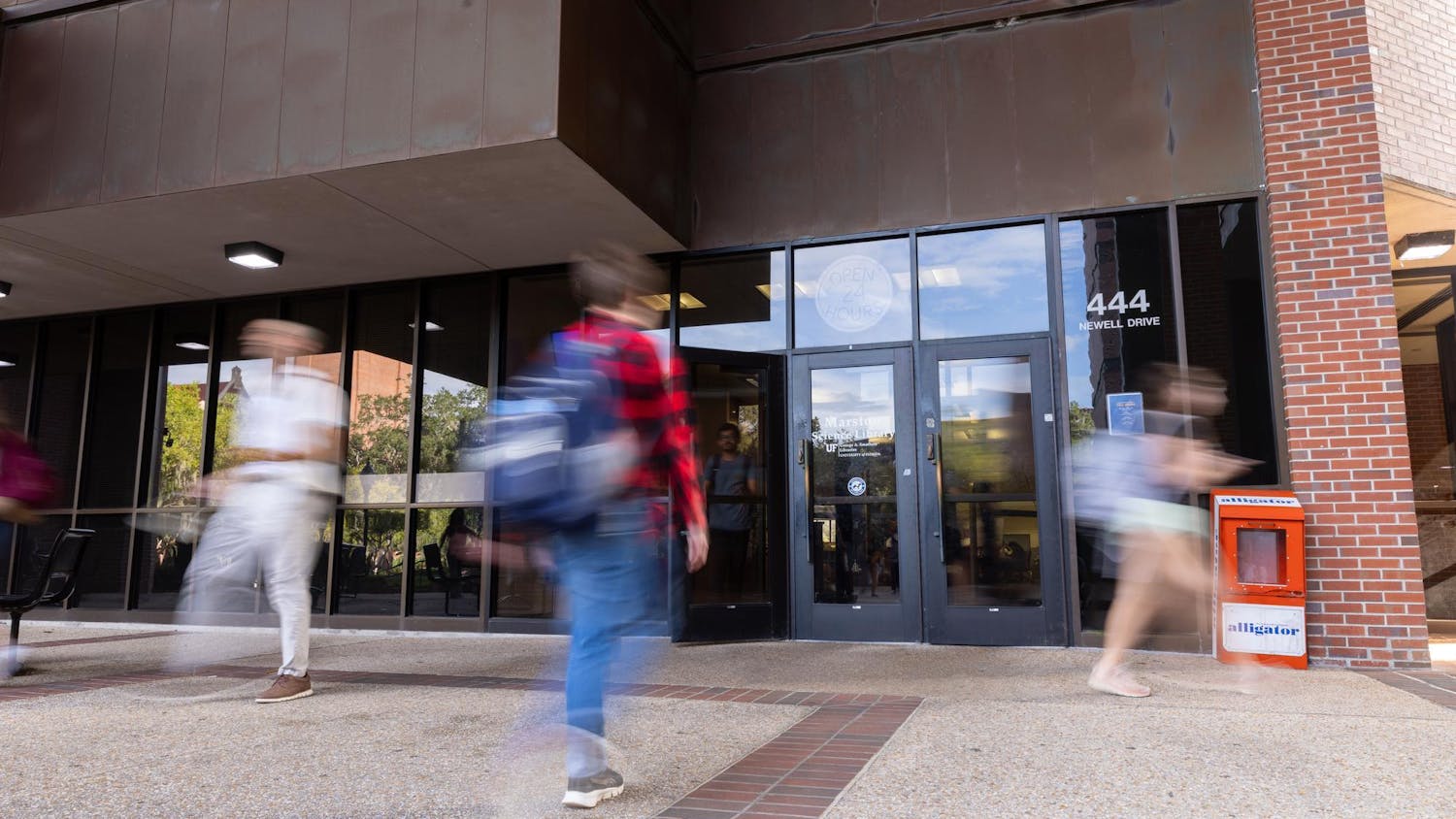Bleak budgetary times have become the norm for UF, and new financial solutions could mean out-of-pocket fees for students.
At committee meetings of UF's Board of Trustees on Thursday afternoon, trustees presented a plan to charge several extra fees for students.
The fees will not be included in tuition or covered by Bright Futures, a Legislature-funded program that pays for either 75 percent or 100 percent of tuition.
Under UF statutes, UF has always been allowed to charge the fees, but officials are still negotiating the details, UF Provost Janie Fouke said.
Students could now be charged ,10 to obtain a transcript copy starting in February 2008. But extra costs for UF students might not stop there.
A ,2-per-credit Distance Learning fee could be charged for students who take online classes.
The fee would also apply to any classes that use the e-Learning online system, even if the class takes place in a campus lecture hall.
Student Body President Ryan Moseley, also a UF trustee, said the fee wasn't fair in light of a newly approved 5 percent technology fee, which will be charged starting next fall.
Many classes are too large to offer anything but online sections, and students shouldn't be penalized, Moseley said. Other trustees agreed.
"If we're doing a lot of online classes because we don't have enough faculty, it's like double jeopardy," Mac McGriff, another trustee, said.
An equipment fee, used for upkeep like repairing science labs or tuning pianos for music class, could also be charged, Fouke said.
The fee's cost will be determined by the cost of the needed equipment. But fees aren't the only way to reach financial recovery.
Carlos Alfonso, a trustee and chairman of the External Relations Committee, said UF has always utilized the federal government for funds when available. He said he still considers it an untapped resource.
In an interview after the meeting, Alfonso said UF brought in about ,450 million from the federal government last year, a sum that has increased steadily each year, and he said there's still room for improvement.
"We're successful at bringing in a lot of money, but we're successful in spending a lot of money, too," he said.
Alfonso said UF is "way too dependent on the state," which has its own financial troubles.
Jane Adams, UF's vice president of university relations, told trustees the Florida Legislature expects a ,1 billion shortfall this year and a ,1.5 billion shortfall in 2008-2009.
UF's share of this year's ,1 billion Legislature cut was ,22.1 million. In addition to the cut state funds, UF decided to cut nearly ,12 million more to set aside funds for other programs, bringing the total cuts to about ,34 million.
UF created Cost Reduction and Efficiency Task Force to find ways to trim expenditures and bring in extra revenue.
In a report to the Committee on Resources, Kyle Cavanaugh, UF's senior vice president for administration, presented the task force's initial recommendations, which could earn as much as ,4 million a year and save about ,2.5 million annually.
The task force also had suggestions for one-time savings of ,3 million to ,4 million.
The recommendations include the transcript fee, requiring non-Florida-resident graduate students to become residents, and selling underused UF vehicles.
The ideas could be implemented in a few months.
The committee is also preparing a second set of recommendations, and the total savings from both sets could range from ,12 million to ,20 million over several years, he said.
The second round of proposals included charging UF applicants a fee to review their immunization status and selling the WRUF radio station.
Manny Fernandez, a trustee and chairman of the resources committee, said most of the proposals deal with a small section of UF's ,4.5 billion budget.
"It's a good start, but we need to look at the other ,4 billion, or the whole pie," Fernandez said. "We're picking some of the low-hanging fruit."






